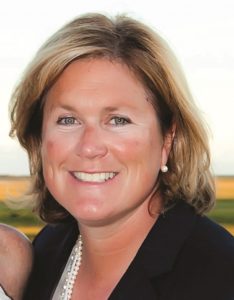PROVINCETOWN — A housing strategy involving deed restrictions that was devised in Vail, Colo. and has been duplicated in Lake Tahoe, Calif. could soon be coming to the Cape and Islands.
Provincetown Select Board member Leslie Sandberg told the board on Jan. 9 that the housing directors of Nantucket and of the Martha’s Vineyard Commission are working with Provincetown and three state legislators to authorize a key component of Vail’s innovative deed restriction program on Beacon Hill.

The three lawmakers — Reps. Dylan Fernandes of Falmouth and Sarah Peake of Provincetown and Sen. Julian Cyr of Truro — want to introduce a draft bill before a legislative deadline on Jan. 20, Sandberg said. The language could still be adjusted afterwards, she said, and the select board voted to have the town’s legal counsel, who also represents Nantucket, work with town staff to write the draft.
These procedural moves could pave the way for other Cape Cod towns as well, Sandberg said.
Policies that allow towns to pay homeowners (or would-be homeowners) to write restrictions into their deeds, usually in perpetuity, are nothing new. But in Massachusetts, public money has been spent only to secure deed restrictions that control the affordability of the house or apartment involved.
The kinds of restrictions that are familiar here require that “affordable” units be sold to people whose incomes are below a certain threshold. Towns decide on their affordability policies by looking at federal area median incomes (AMIs) and considering the local economy. The restrictions also limit the resale price of the property, tying it to inflation.
The cost to create such a deed restriction — that is, to “buy down” a unit from market rate to an established legally affordable level — has been rising rapidly. Provincetown housing specialist Michelle Jarusiewicz estimated last year that it would cost about $400,000 to buy down a single condo unit from the market rate to a legally affordable one.
In August, the Cape Cod Commission invited Vail’s housing director, George Ruther, to explain his town’s deed restriction program to Cape Cod leaders. Vail’s housing crisis — like Cape Cod’s — was no longer limited to lower-income families, Ruther said, and was now affecting nearly everyone who earned a living in the county.
“Nine-and-a-half times out of ten, which is as close to always as you’re going to get,” houses were selling to people who did not live or work in Vail, Ruther said. There were 7,200 houses in town and only 5,300 residents, but every time a property sold, it was going to someone who did not plan to live in it. The people who kept Vail’s economy running, from tourism workers to people in business, government, and health care, were being squeezed out.
“In my way of looking at things, we don’t have a housing problem, we have an occupancy problem,” Ruther said.
That became the basis of Vail’s strategy. The deed restriction program the town developed does not target incomes or control the sale price of property, Ruther said. Instead, it requires that the occupants of a unit, whether owners or tenants, live and work in the county.
A committee worked out what kinds of restrictions homeowners would accept and what the town could pay in exchange for those restrictions, finding a sweet spot at about 15 to 20 percent of market price.

Vail’s housing authority, using sales tax revenues, has now bought 175 such deed restrictions at an average price of $69,000 each, Ruther told Provincetown’s housing workshop last month. They have nearly all been condo units, rather than single-family houses, Ruther said, but a wide range of people have been willing to accept the deed restriction in exchange for cash.
About 60 percent have been private individuals who are deed restricting a property they already own, Ruther said. Others used the money toward down payments, with the deed restriction making the purchase possible.
“We’ve also had people sell us deed restrictions because they know that, without this program, their children will never be able to return here,” Ruther said. So far, Vail has spent about $12 million to secure its 175 deed-restricted units, which house almost 400 residents.
By adding a policy affecting new development, the ski town of Lake Tahoe was able to get some deed restrictions in place “for free,” Placer County, Calif. housing planner Devin McNally told the Cape Cod Commission conference last August. Placer County copied Vail’s deed restriction program but added a rule that half the units in new developments must be deed restricted to people who will work in the county.
“The goal of this is to get as many tools into the toolbox as possible,” Laura Silber, the housing planner at the Martha’s Vineyard Commission, told Provincetown’s select board Monday night.
“It’s not going to be one silver bullet that solves the housing crisis,” Silber continued. “Particularly for smaller towns, we have to look at infill development and repurposing existing structures.
“But Vail has been able to use this tool to capture existing inventory into perpetually attainable community housing,” Silber said. “This is not to take away from affordable housing projects — this is something to add.”
Other Strategies
The select board went on to discuss several other housing strategies at its Monday night meeting, some of which might be presented to this year’s annual town meeting in April.
The board voted to commission the Donohue Institute at UMass Amherst to study the town’s short-term rental industry and its effect on year-round housing, including policies that might restrain the further growth of short-term rentals. That study will take about six months to complete, however, and Assistant Town Manager Dan Riviello said the town might consider a moratorium on new short-term rentals in the meantime.
“Once we have new compliance software and a better idea of the true number of operators, we can come back to you with a recommendation on whether to cap short-term rentals with a one-year moratorium,” Riviello said. “It would give us time to study possible future regulations, have a community conversation, and decide the best way to go forward.”
Select board members also discussed expanding the town’s down-payment assistance program. The affordable housing trust currently can assist with up to $30,000 toward down payments for people earning 100 percent of area median income or less. Board member Louise Venden said the Year-Round Market-Rate Rental Housing Trust would like to offer down-payment assistance to people who make more than 100 percent of median income but still struggle to meet down payment costs.
Sandberg also proposed that the town work out a late-night transportation program with the Provincetown Chamber of Commerce and the Provincetown Business Guild.
“Could we contract with a local cab company or the Funk Bus,” asked Sandberg, “or help offset the cost of parking or gas?” Workers are spending their wages on taxis because there are no good options after 11 p.m., Sandberg said, and so few places in town to live.
The Cape Cod Regional Transit Authority does not appear to be developing a late-night bus of its own for the Outer Cape, Riviello said. The town might be able to run its own program for less than a CCRTA pilot would cost, Riviello added, especially if it were in concert with business groups.



